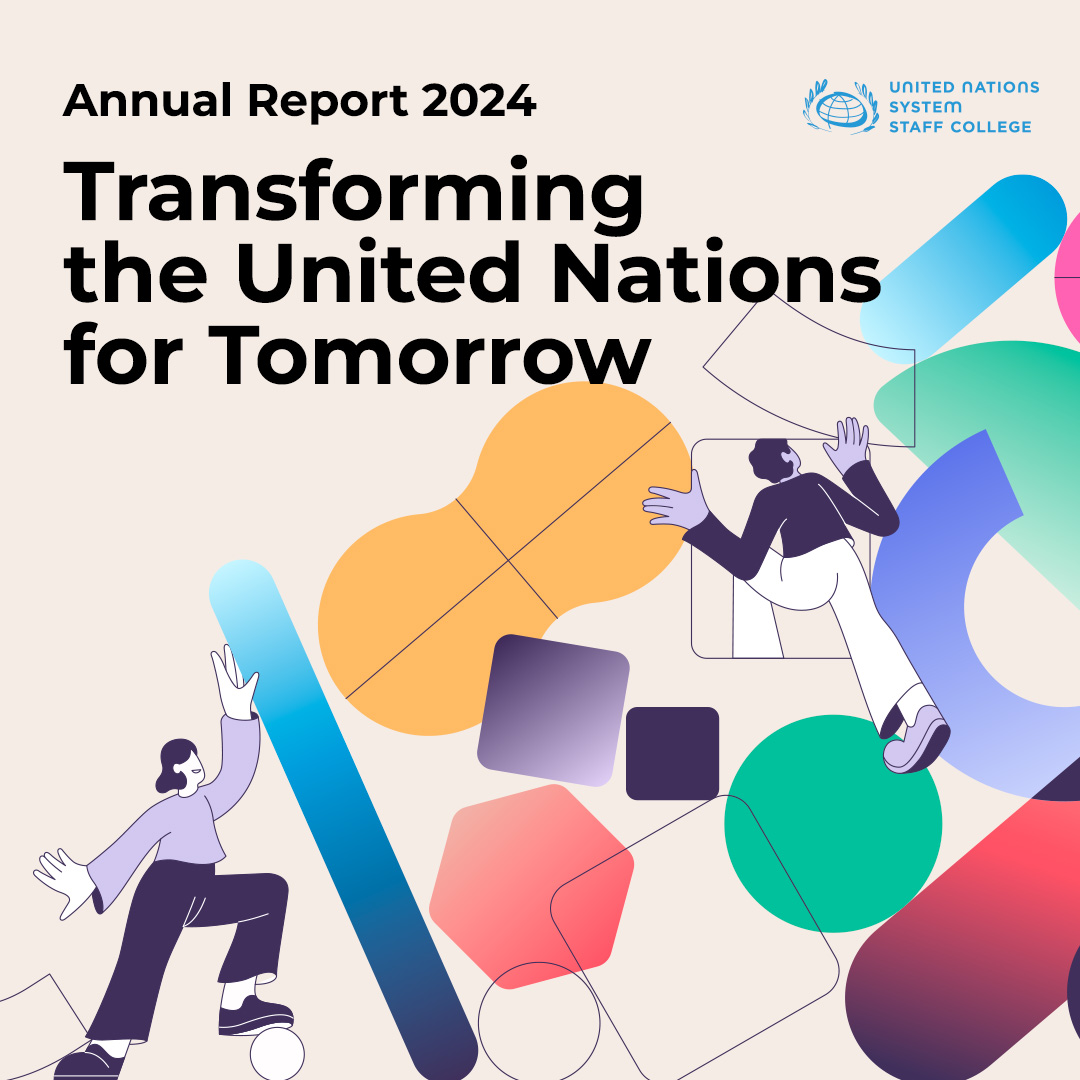


To enhance the United Nations’ mandate and achieve the 2030 Agenda, it is essential to cultivate a leadership culture that emphasizes collaboration, inclusivity, transparency, and efficiency. As outlined in the United Nations System Leadership Framework, this culture should empower diverse perspectives to drive decision-making, focusing on accountability and adaptive strategies. In this way, teams are enabled to respond effectively to global challenges, promoting shared values and goals while minimizing costs. Leadership qualities can be embedded in all areas of work of the UN system, at all levels and in all functions and locations. Targeted training and continuous learning are crucial for cultivating this culture. In 2024, UNSSC offered several initiatives tailored to various leadership and management levels within the UN system.
The UNHCR Leadership Culture Assessment, conducted in collaboration with McKinsey & Company, examined the cultural dynamics of nine internal organizational units and engaged over 50 teams to identify strengths and areas for improvement. UNSSC also trained facilitators in English, French, and Spanish to facilitate discussions leading to actionable solutions.
UNSSC’s flagship UN Leaders Programme benefited 63 directors from the UN Secretariat through expert discussions, leadership assessments, and executive coaching offered in blended and online formats. The UN Country Team Leadership Course trained 64 leaders from 11 UN agencies, enhancing their strategic communication and negotiation skills. Impressively, 99 per cent of participants indicated their intention to apply their learning to achieve sustainable development results. The Emerging Leadership and Career Booster Programme for Finnish and Swedish Junior Professional Officers (JPOs) equipped 45 JPOs with essential skills and tools to fulfil their role as JPOs, and to navigate their career paths while adapting to emerging system-related challenges. This programme emphasized career management, networking, collaborative leadership, and peer-to-peer learning and networking.
Investing in these training initiatives is vital to fostering a strong leadership culture within the United Nations, ensuring that the organization remains innovative and effective in addressing global challenges.
WHO representative for Liberia
“I encourage all colleagues from all our organizations to attend because it improves your leadership skills, it improves your communication, and importantly, it brings an added value. The fact that all of us, as colleagues from the UN agencies, are able to sit and discuss together and address the UN issues as one, is really a strength. I've gained a lot from these five days, and it is my hope that UN colleagues will continue to benefit from this training.”
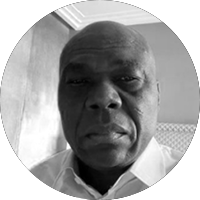
Principal Security Advisor, UNDSS
“The UN Leaders Programme is the best leadership programme that I have attended in over 25 years in the United Nations. It is well adapted to our daily experience, and credit must be given to the diligent facilitators’ and the resource persons’ humility and knowledge. Thanks to the smooth and effective communication styles of the team and facilitators, I learned a lot from other experienced colleagues and was also able to bring my own experiences to bear. The DiSC assessment was outstanding, and I will forever cherish the balcony.”
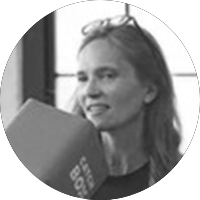
Senior Change Management Advisor, Organizational Development & Culture, UNHCR
“With care and dedication, the UNSSC, together with McKinsey, ran the assessment, debriefed us on the results, and trained facilitators to work with each team. This cannot be rushed and requires patience to engage everyone across all levels. To date, culture champions from operations, the regional bureau and a division are experimenting with taking action on the issues identified.”
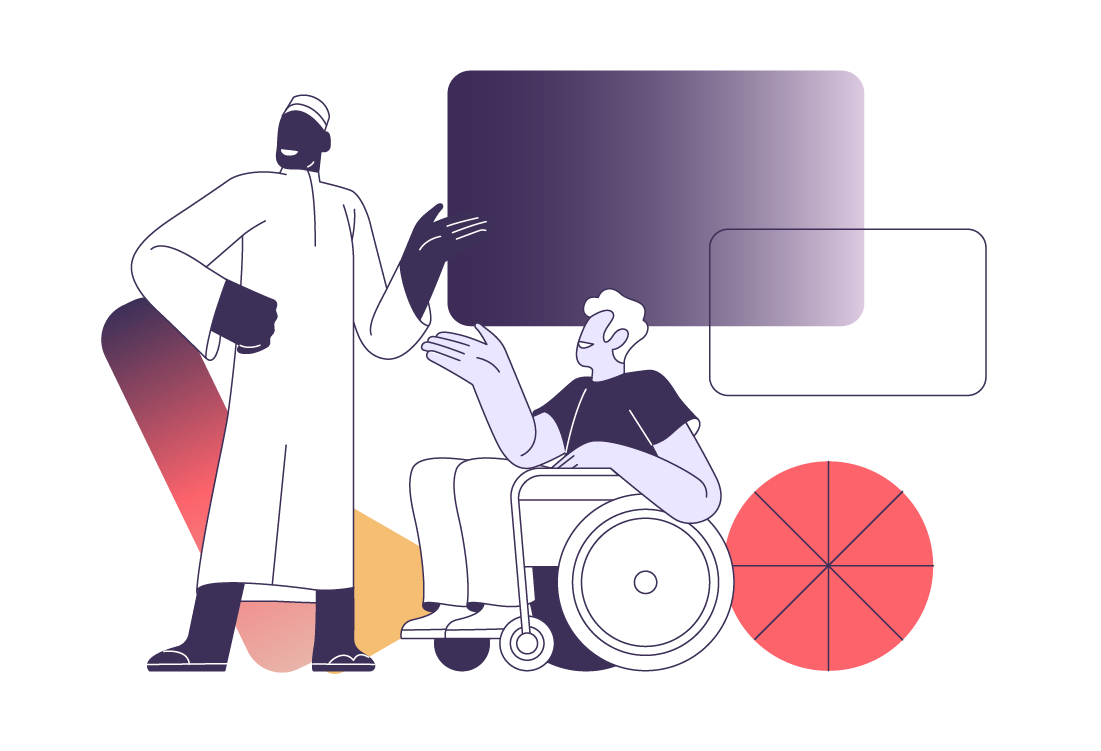
Partnerships and Engagement Specialist, UNDP
“The training is an incredible investment. I firmly believe that several JPOs who would otherwise leave the UN system feel more empowered and motivated to pursue a UN career after the training. I also feel incredibly privileged to have had the chance to reflect on my career, life and future during a whole week together with peers in similar situations. After the training, I have much more clarity on what I want and how to get there.”
Continuous learning is essential for UN personnel to effectively address evolving global challenges and implement innovative solutions in a rapidly changing world. Learning enables the people of the UN system to enhance their professional skills, cross-cultural competencies, and leadership and management capabilities, ensuring that they can navigate complex international environments and drive impactful change. By fostering a culture of lifelong learning and connecting learners and learning practitioners across the system, UNSSC strengthens institutional resilience, promotes efficiency, and advances the United Nations’ commitment to sustainable development and global peace. It does this through the Blue Line, a major UN-wide digital learning platform, and by hosting the Learning Managers’ Forum, a network of key system-wide champions who drive learning within their organizations. These two large-scale initiatives bolster a common learning culture within the UN system.
The Blue Line is an online learning hub created to equip all UN personnel with personalized and self-directed learning opportunities. With more than 55,000 learners, (17,000 of whom joined in 2024), the Blue line reaches 60 per cent of personnel across the UN system. Fourteen UN agencies have ensured that all their personnel have unrestricted access to critical learning resources through the corporate subscription model. Beyond the core offerings, agencies can integrate thematic learning paths to further align professional development with strategic priorities. The tailored programmes improve digital fluency, analytical skills, and agility, helping UN personnel at all levels to create sustainable impact and address emerging challenges effectively.
The Learning Managers’ Forum connects learning practitioners from across the UN system to explore key topics and support a culture that values professional development. In 2024, the forum focused on UN 2.0 and how the learning function can enhance the Quintet of Change, covering behavioural science for impactful learning experiences, strategic foresight for future learning initiatives, and adaptive leadership to foster a culture of curiosity and to promote agility and a growth mindset. Virtual sessions also addressed data-related issues, including using dashboards for learning evaluation and integrating AI into learning design.
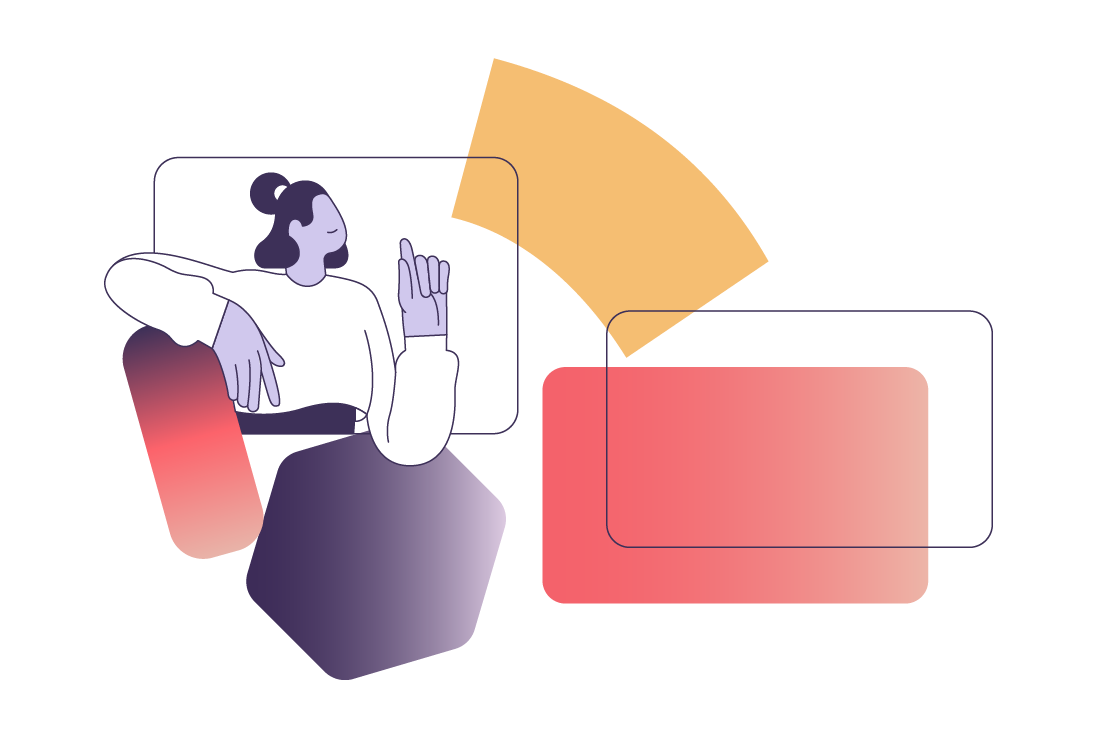
Senior Programme Officer, Food and Agriculture Organization of the United Nations (FAO)
“With self-paced learning [of the Blue Line], I was concerned that it might feel lonely. It turned out to be a completely different experience—my network expanded. I enjoyed participating in the discussion forums, where we reflected on the content of each module. These exchanges enriched the learning resources and provided opportunities for experience-sharing and knowledge-sharing. In the United Nations, we are spread across different duty stations, locations, and contexts, and everyone brings a unique perspective to the same subject.”
Learning Manager, UN Women
“This forum has been a long standing and invaluable network for the learning community for over 25 years. As one of the “oldest” members, from my first in-person forum in Geneva in 2003 to most recently in Turin, it has provided a crucial space for building networks, exploring new practices, learning different methodologies, and sharing initiatives. During this time, one of the most positive evolutions I have seen is that the forum has become not just a place for learning managers to come together but has emerged as a place where the entire UN learning community is an open, thriving virtual community where a request, need, or connection is responded to within minutes. I am thankful and happy to be a part of this community, which continues to play a pivotal role in supporting learning for the entire UN community as we strive to fulfil our global mandate to create a better world for all.”
UN 2.0 calls for a forward-thinking culture that values agility, learning, and curiosity. The ambition is to cultivate a United Nations environment that promotes global diversity, inclusion, human rights, youth empowerment, and environmental sustainability, grounded in firm commitment to integrity, humility, and humanity. UNSSC supports this approach inter alia by promoting the meaningful inclusion of young people. In 2024, UNSSC partnered with the United Nations Office for Disarmament Affairs (UNODA) to design and deliver interactive online skills-building workshops focused on leadership, negotiation, and future thinking for 100 young leaders across the world. Recognizing that young people are not merely recipients of knowledge but also co-creators, UNSSC worked alongside both senior and young experts. This intergenerational exchange ensures that knowledge is not only transferred but also co-designed, shared, and applied. A key feature of the programme was the action-planning exercise, in which participants developed strategies to implement disarmament initiatives in their own communities. This hands-on approach reinforces youth ownership, accountability, and commitment, aligning with UNSSC’s role in managing knowledge for long-term impact.

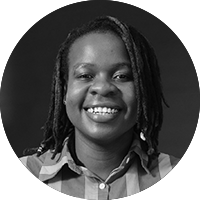
Deputy CEO, Strategic Partnership and Development at Asante Africa Foundation
“In co-creating the leadership session workshop, I was honoured to collaborate with UNSSC experts, from whom I learned more about leadership theories and approaches. I expanded my network by engaging with youth leaders from across the world, learning from their initiatives and experiences. By encouraging intergenerational dialogue, spaces are created for mutual learning where youth can benefit from established experts and vice versa. This exchange of knowledge and experiences nurtures a culture of continuous learning, empowering youth leaders and bridging the knowledge gap between different generations.”
The world stands at a critical juncture, yearning for transformative and systemic leadership that is not only values-driven but also resonates across different demographics and age groups. In this ever-evolving landscape, there is a pressing need for diverse and adaptable leaders—individuals who are not only prepared but also eager to embrace complexity and context, foster South–South and South–North learning, and act as brokers who are able to catalyze diverse perspectives. With the objective of creating and fostering a new generation of social change-makers, in 2024, UNSSC partnered with seven universities to establish the Nelson Mandela Project for Social Change. Anchored in the legacy of President Nelson Mandela, the project is inspired by his core values of dialogue, resilience, and empathy to foster a new generation of leaders.
Global in scope yet rooted in regional contexts, the project aims for widespread impact while addressing local needs. Each of the partnering universities offers a particular perspective to the project, as well as specialized topics. For example: the American University in Beirut (Lebanon) focuses on social movements and the reimagining of global civilization; Austral University (Argentina) on geopolitics of cities and inequality; the City College of New York (USA) on leadership diversification and racial justice; IE University (Spain) on evolving global governance paradigms and futures thinking; the Kalinga Institute of Industrial Technology (India) on social entrepreneurship and culture diplomacy; the Lee Kuan Yew School of Public Policy (Singapore) on urban climate adaptation and digital transformation; and the University of Cape Town (South Africa) on social change and regional integration.
These seven institutions represent diverse regions across the globe, fostering an enriching exchange of perspectives, knowledge, paradigms, and priorities. Through various workshops and discussions, the partners defined the project's objectives and the activities to be developed, including leadership dialogues and the Global Academy of Social Change set to launch in 2025. The academy will consist of participants with a track record in social innovation and sustainable development. The annual semi-academic programme will be conducted online, featuring classes and workshops, and will conclude with an in-person gathering at a participating university.
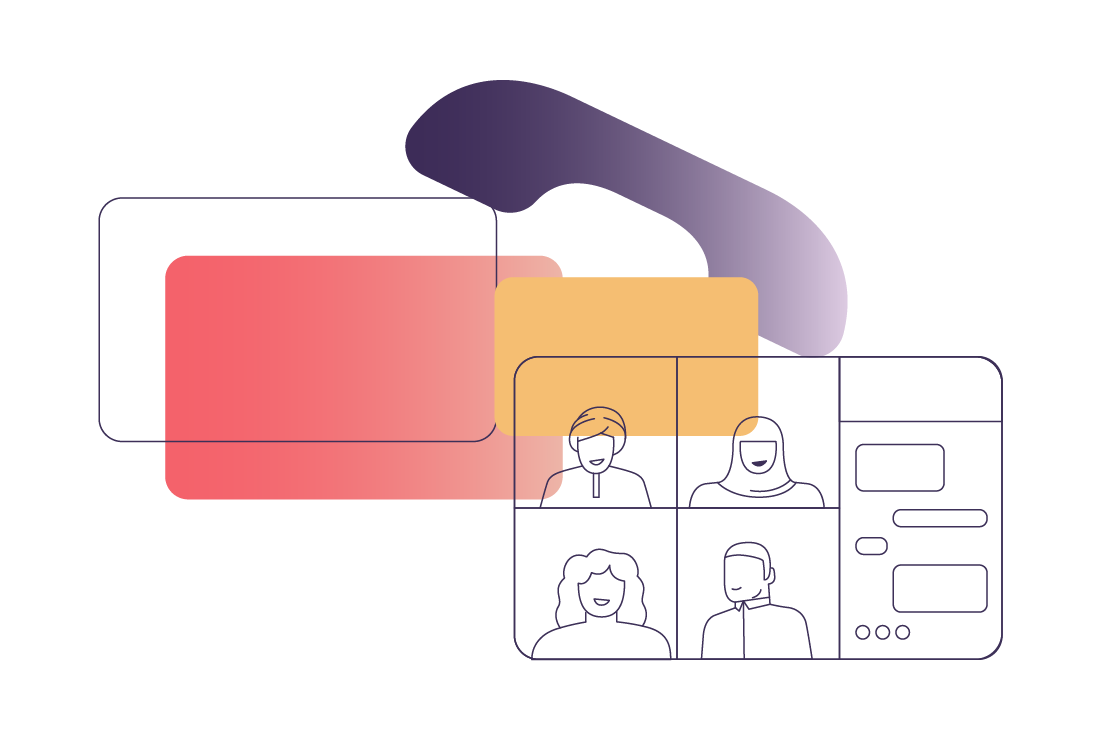
Vice Dean (Executive Education), Lee Kuan Yew School of Public Policy
“What excites me about this project is to be able to contribute to the learning and the understanding of this world, but also to equip young generations to deal with its challenges.”